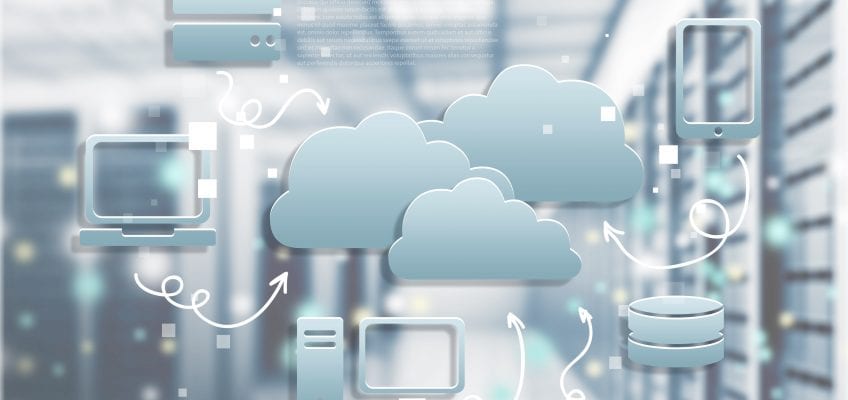A lot can be said about cloud computing and the numerous benefits it provides businesses. We are currently living in an age where cloud computing is massively used in all aspects of life.
Both our personal and business lives can be drastically improved through the use of cloud-based applications and services. It is said, according to data from the International Data Group, that almost 70% of all businesses are transitioning some of their operations to cloud-based systems.
These numbers show us that this technology is very much appreciated in the business world. But what are the actual benefits that businesses and companies gain by using cloud-based systems and applications?
In this article, we’re going to be talking specifically about that so don’t go anywhere as we’ll start right now.

1. Cost savings
Prior to transitioning to the cloud, businesses have to research whether or not these applications and systems negatively or positively impact their finances.
If you ever thought that the cloud won’t save your business tons of money, then you are very mistaken. However, these concerns are shared by almost 25% of the entire US business sector. Naturally, we thought that this would be the first talking point in our article.
To get a proper answer, we have to factor in a lot of things. For starters, are you a business that handles a lot of data? Is the handling of data an expensive business procedure? It should be said that the cloud will save you tons of money in data access.
This is precisely why startups tend to use such applications and systems. But even if your business doesn’t rely on the numerous features that these apps and systems offer, you are exempt from paying for any features that you don’t use.
This is because the makers of this tech tent to implement a pay-as-you-go system.
2. Security

It’s not unheard for a business to have safety concerns when it comes to adopting these technologies. Since not every company is related to the tech industry, it takes research into the safety and security features before making a decision.
For an IT company, this decision is made easy due to the popularity and widespread availability of data into every respected field. But if your business has nothing to do with IT or you have no prior knowledge of cloud technology, then rest assured as your data will be protected.
When implementing any such technology, it is the job of the makers of the tech to provide 24/7 security monitoring. This is a feature that many other technologies lack, and the single most important reason what makes the cloud so popular.
Managing an in-house IT department is significantly more expensive and less safe than having someone else monitor the cloud server. Even if businesses hate discussing internal data theft, it is the single biggest security risk for every business.
Since this is the likely reason for data theft in nearly 80% of the cases, keeping all of your important and conventional data on a remote server monitored by an experienced professional might be a smart thing to do.

3. Flexibility
Not every business has the necessary resources to maintain flexible operations across the entire board. With an in-house IT department, you will be mostly allocating a lot of your IT resources on preventing data storage issues that can certainly be very hard to deal with.
According to QuickStart, with cloud technologies, you can have someone else take care of all of your infrastructure and data while you concentrate and allocate your human resources to reaching the desired goals.
There are many cloud-based technologies that help you achieve this. Most of them are highly specialized and designed to work in certain fields. But some are so flexible that they can be used by any business in any industry.
There’re also applications and systems that improve your experience while using these technologies. So if you’re interested in one such app, make sure to visit here.
4. Mobility
It’s very hard to manage data through a mobile device if you’re using software that isn’t designed for it. Naturally, this means that you are effectively losing mobility when needing.
However, this problem is virtually nonexistent with the use of cloud-based technologies. Since these technologies are designed through a mobile-first approach, it means that they are highly portable and extremely versatile when needing to use from other devices.
Cloud-based apps and systems can be used from your smartphone, tablet, laptop, PC, and any other screen imaginable. Instead of needing to open your laptop or go to the office to access important information, you can do it straight from your smartphone through the carefully-designed user interface that these platforms and apps offer.
5. Greater control
The brilliant thing about cloud technology is the fact that it offers the average user and managers greater control of information. While you can always limit the amount of control every person in your system has, it goes without saying that everyone can access any piece of information from anywhere at any time.
This is completely opposite to what an in-house IT department can offer to your business. IT teams must constantly maintain an open connection so that any employee can use the system, and their mobility is also limited. By using cloud-based systems, you won’t have to think about downtimes as the system will always be up and running.
And since every person will be uploading data to a centralized space, it means that you have greater control of information.
6. Disaster recovery

This might be the single biggest reason why businesses transition to cloud systems. While every point we’ve mentioned prior is also very important and plays a huge role in the transition, disaster recovery is certainly up there with the best.
Disaster recovery simply refers to methods and techniques implemented to prevent impossible recovery of data. This mostly occurs due to natural disasters, which are very hard to predict.
Regardless of how much you think your data is safe by keeping it on a hardware unit in your office servers or through a third-party service provider, no one can predict a natural disaster that can easily sweep the building.
By using cloud-based systems, your data is virtually saved on the cloud and can always be accessed regardless of the emergency or level of disaster.

